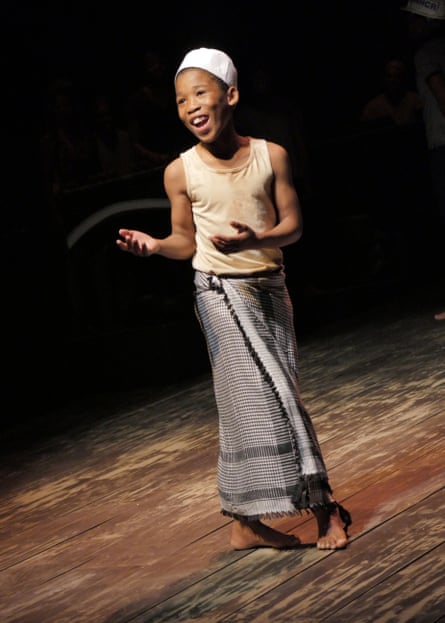A Man of Good Hope is not a story set to music. Music is the story. Isango Ensemble is a marvel. Set up in 2000 by Mark Dornford-May and Pauline Malefane, the company has drawn on the musical and acting talent of the townships surrounding Cape Town to create revelatory versions of The Mysteries and The Magic Flute. Now they have adapted a book by Jonny Steinberg, a white journalist, which tells the story of Asad Abdullahi.

It is a story of journeys driven by terror. When he was eight, Abdullahi saw his mother killed by militias during the civil war in Somalia. He left for Nairobi, then for Addis Ababa, Johannesburg and Cape Town. He saw a cousin shot, the store where he worked ransacked and its manager killed. A wife and child left him. No doubt David Davis would like to have a look at his teeth.
Abdullahi could not finish Steinberg’s book: it was too crammed with unhappiness. Yet on stage his story is not just of sadness and terror but of indomitability. And of great gifts shaming the circumstances into which they were born.
Rusted sheets of corrugated iron form the back wall. A series of doorways – simple frames held up by the actors – mark passages from one country to another, and from life into death. Marimba players stand on each side of the stage. The music rolls from one side to the other like the people on the move; male and female dancers take to the floor as if they were incarnations of each note. Siphosethu Juta, making his stage debut, plays Abdullahi as a young boy. He is 12, slightly older than Abdullahi was when he looked after a wounded relative, wiping her bum, and the blood of her period. Juta is dextrous, thoughtful, witty. Breathtaking. As is the musical invention. But always with a point. These tunes are clan songs, which help you recognise others, and memories that help you know who you are. They are gifts to the audience who come away humming. Their musical DNA has been changed.
A Man of Good Hope is showing at the 2019 Adelaide Festival, 5-11 March.

Comments (…)
Sign in or create your Guardian account to join the discussion